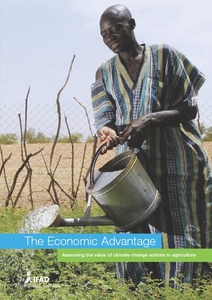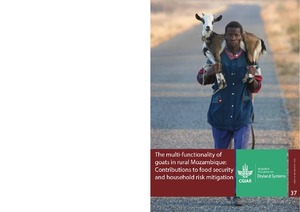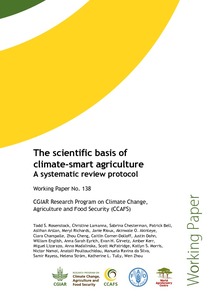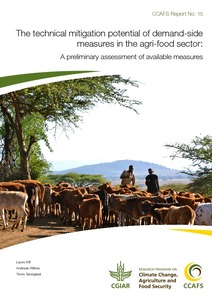The Economic Advantage: Assessing the value of climate-change actions in agriculture
This report is aimed at readers who seek to build economic evidence in support of the inclusion of actions on agriculture in climate change plans and programmes, particularly at the national level under the umbrella of nationally determined contributions (NDCs) to the December 2015 Paris Agreement, which aims to restrict a rise in global temperatures and manage risks.










